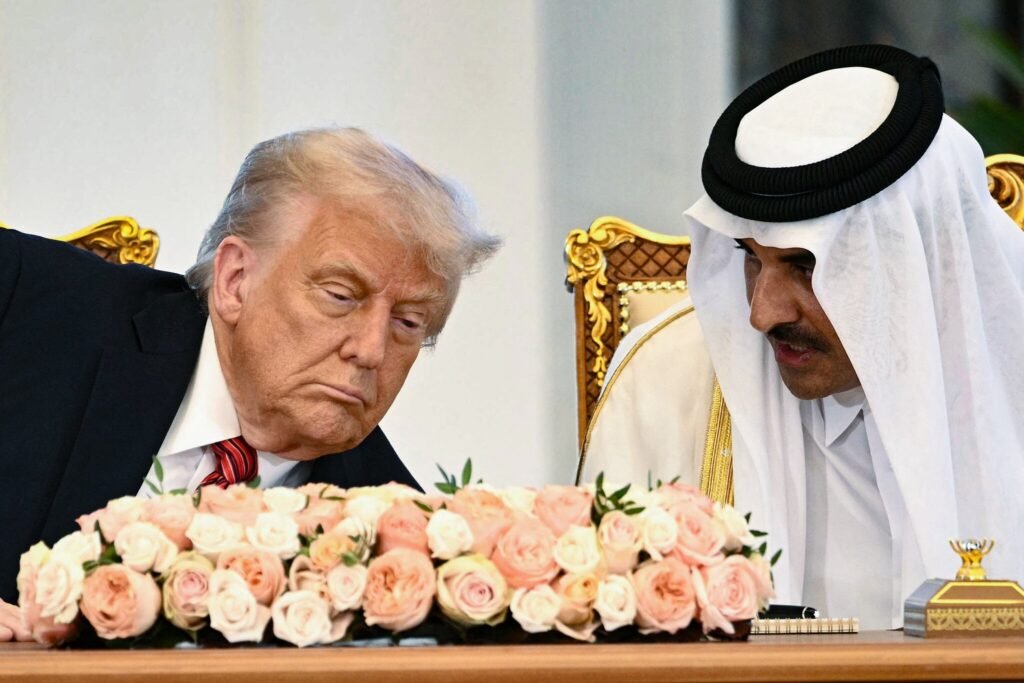US Commitment to Qatar: A Strategic Executive Order After Recent Tensions
In a significant move, the White House announced an executive order on Wednesday, underscoring U.S. President Donald Trump’s dedication to the security of Qatar. This directive frames any armed assault on the small Gulf nation as a direct attempt to compromise American peace and security.
Context of the Executive Order
The issuance of this order follows a recent incident where an Israeli strike targeted Hamas leaders in Doha, sparking backlash and considerable concern among Qatari officials as well as criticisms from President Trump. This airstrike tragically resulted in the deaths of lower-ranking Hamas members and a Qatari guard, although the intended targets escaped unharmed.
In light of this attack, President Trump swiftly took action. He reportedly engaged in diplomatic talks, persuading Israeli Prime Minister Benjamin Netanyahu to issue a formal apology to Qatari Prime Minister Mohammed bin Abdulrahman bin Jassim Al Thani. Netanyahu reassured Qatar’s leadership that Israel’s actions were intended solely against Hamas and not against the citizens of Qatar, emphasizing regret over the civilian casualties.
Executive Order Highlights
This executive order, signed just a few days ago, enacts provisions that will see the U.S. respond decisively to any future aggression against Qatar. It articulates the commitment of the United States to "take all lawful and appropriate measures," which encompass diplomatic, economic, and potentially military responses, in the event of an attack.
The time and intent of this order come as President Trump seeks to broker peace amid escalated tensions due to a recent Hamas-led assault on Israel in October 2023. Support from Qatar in efforts to resolve the ongoing Gaza conflict has been forthcoming, with the nation praised for its diplomatic endeavors.
Diplomatic Support Reaffirmed
The executive order further stipulates that senior U.S. officials will ensure a rapid response to any foreign aggression targeting Qatar. This commitment builds upon the longstanding U.S.-Qatar partnership, especially given the strategic importance of the U.S. military base located on Qatari soil. This base has previously been threatened, notably following Iranian retaliatory attacks linked to U.S. military operations in the region.
The order also emphasizes Qatar’s role as a mediator in the conflict, indicating that U.S. Secretary of State will maintain collaboration with Qatar for future conflict resolution efforts, acknowledging its historical diplomatic contributions.
Regional Implications
The backdrop of these developments is complex, with Qatar maintaining a multifaceted relationship within the Middle East, particularly regarding its ties with Hamas, which has led to criticism and questions about its regional stance. However, this executive order signifies a strategic pivot, highlighting the importance of Qatar as a stabilizing force amid chaotic regional dynamics.
The crisis surrounding the Israeli strike and the U.S.’s swift response underscores the importance of international partnerships in maintaining peace and stability. The geopolitical landscape illustrates how a small nation can play a critical role in broader conflicts, and it emphasizes the necessity of ongoing diplomatic engagement and military readiness.
Conclusion
As tensions rise and geopolitical realities shift, the United States’ reaffirmation of its commitment to Qatar is not merely a defensive measure but also an investment in regional stability and diplomatic solutions. This executive order stands as a testament to the evolving nature of international relations in the Middle East, reminding all parties of the intricate balances that must be managed to prevent further conflicts.
For further details, refer to the official announcement of the executive order on the White House website.


